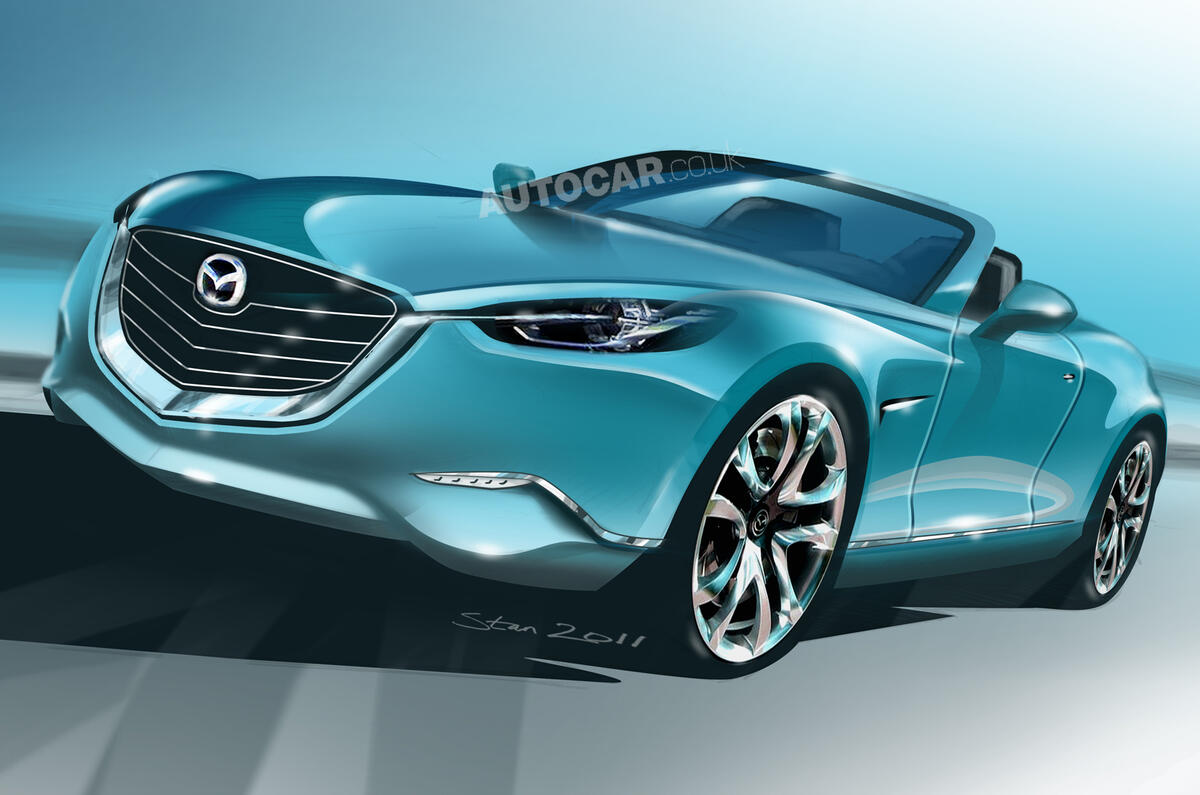Mazda’s next-generation Mazda MX-5 will combine a small-capacity turbocharged four with lightweight engineering to return the two-seater in 2012/13 to its original agile sports car concept.
According to a senior insider, Mazda’s engineers have been tasked with cutting 275kg from the 1075kg ‘empty’ kerb weight (the weight without a driver) of today’s MX-5 to hit an ambitious target of 800kg.
This would be a significant step forward for a volume-production sports car. In its leanest form, the MX-5 weighed just 955kg at its 1989 debut.
That was an era before comparative crash-testing added weight through heavy body structures, side-impact bars and airbags, and extensive, luxury specs became standard.
Autocar’s product planning source doubts that the highly ambitious 800kg target will be met. However, progress is described as “not bad”.
Weight-saving will be fought on many fronts, starting with lightening as many mechanical components as possible, adopting lightweight materials and deleting features to create a more minimalist spec.
This downsizing of components will then lead to a ‘virtuous circle’ in which a lighter car allows a lighter transmission, smaller brakes, less hefty suspension and so on.
In place of today’s 1.8 and 2.0-litre engines, the next MX-5 will use a small direct-injection four-cylinder turbocharged engine of around 1.5 litres. It will feature variable cam phasing, lighter, low-friction reciprocating parts, and possibly a new exhaust manifold design that achieves more effective exhaust gas evacuation.
Many of these developments are part of Mazda’s SkyActiv engineering campaign, which aims to improve the efficiency of every aspect of its cars.
Expect a lighter, reduced-friction transmission as Mazda tries to make the manual shift action as mechanically precise and satisfyingly short-throw as the original’s. A highly efficient paddle-shift torque-converter auto, with a lock-up clutch, is likely as well.
The new MX-5 will be more compact than today’s design, particularly narrower in width, which will also reduce the frontal area. And the styling will almost certainly be an evolution of the previous three generations of the MX-5. The design language will be the new Kodo theme first seen on the Shinari concept at Paris last year and interpreted on our artist’s impression.
The body structure will probably remain all steel for cost reasons, but there will be a sizeable content of high-strength panels, and some ingenious structural solutions, such as a twin-backbone frame, to solve the problem of open-top rigidity. Mazda is believed to have taken out patents on some of these innovations.





Add your comment